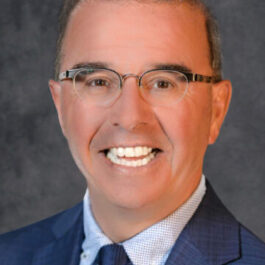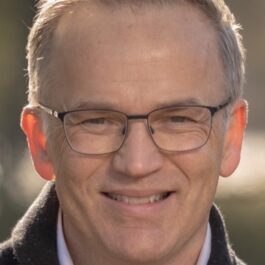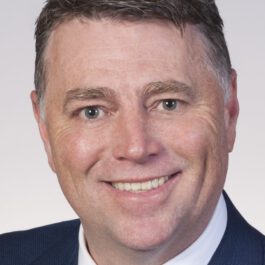2022 Clean50 Honouree Spotlights: Underrepresented Regions

This year the Clean50 spent some extra time and resources in finding nominees from provinces that in previous years had been underrepresented, and we have to say, the talent from these areas have been nothing short of amazing. We not only had nominees from all 16 categories, but we had emerging leaders and interesting project submissions!
We hope to inspire you by putting a spotlight on the extraordinary efforts some of these individuals have put into advancing sustainability since March 2019. Each of these nominees became a Clean50 individual honouree except one, who withdrew for this year’s consideration, based on an inability to travel to the Summit in Toronto. We expect to see him on next year’s list!
Nominees are presented in alphabetical order by surname:
Mayor Phillip Brown
Mayor, City of Charlottetown – Prince Edward Island

Mayor Philip Brown is determined for Charlottetown to lead by example to inspire cities across Canada to become walkable, pedestrian-focused, and sustainable. To decrease GHG emissions from the largest source in Charlottetown (transportation), he set two projects into action: The Transit Electrification project, which will transition 2/3 of the municipal transit fleet to fully electric vehicles, and the Active Transportation project, which has expanded multi-use lanes and pathways by over 8km. As a result, these initiatives have seen over 25% of the City’s commuters using active or public transportation. The recently passed Community Energy Plan invests $6.8 million in energy upgrades to City facilities to lower its energy demand in 2021 and bring down Charlottetown’s environmental impact even further.
Richard Florizone
President and CEO, International Institute for Sustainable Development (IISD) – Manitoba

This past year, the federal government unveiled their new spending plan for $101.4 billion to support Canadians through COVID-19 and stimulate the post-pandemic economic recovery. As Chair of the “Task Force for a Resilient Recovery” Richard influenced about a quarter of that money, unlocking countless jobs and opportunities for Canadians aspiring to help us fulfill our climate change goals. This outcome came in an intense four-month effort that brought together 15 independent task force members, 11 expert advisers, five funders, eight research organizations, and 36 team members. This team produced a communications campaign and a comprehensive independent report with urgent advice on how Canada could build back better from COVID-19. The Task Force’s recommendations helped drive over 25 billion in new federal investments committed to advance clean technology, energy efficiency building retrofits, renewable energy, zero-emissions transportation, and nature; investments that will help jump-start Canada’s progress in meeting our goal of net-zero emissions by 2050 – and boost our economy at the same time.

Premier Dennis King
Premier & President of Executive Council – Prince Edward Island
Thanks to Premier King, PEI has a head-start on the race to become Canada’s first net-zero province. He announced the $14.5 million funding to establish the UPEI Research Centre for Climate Change and Adaptation for local research and educational opportunities – just days after taking office in 2019! Significant investments were made in electrifying PEI’s school bus fleets, resulting in a 10% reduction in GHGs in 2020. His most recent announcement was that PEI would create a cluster-model for the Clean Tech industry by creating a $10 million fund for cleantech research and development projects, $50 million dollar loan facilities to assist businesses to adopt and develop clean technology solutions, and the creation of the PEI Energy Academy and Eco-Innovation Park.
Shaun Loney

Encompass Coop – Manitoba
As of December 2020, Enviro-Stewards’ engineering projects have saved facilities $135 million, 101 million m3 of natural gas, 150 million kWh of electricity, 21 million m3 of water, and 245,000 tonnes of GHG emissions. Alongside helping other companies reach their sustainability goals and beyond, they have reduced their own company’s footprint by 78% per employee.
As the president and founder of Enviro-Stewards Inc., Bruce Taylor has provided direct leadership to the work achieved at his certified B Corp organization. Over the last two years, his efforts have helped Maple Leaf Foods become the Worlds’ First Major Carbon Neutral Food Company and assisted 50 Canadian food & beverage processors to save a significant amount of food. Taylor and his team have also helped eight organizations win a Clean50 Top Project award!
Ian Loughran, P.Eng

Owner, Vereco Smart Green Homes – Saskatchewan
As team lead and brand ambassador of Vereco Smart Green Homes, Ian has built trust and credibility amongst communities throughout Saskatchewan. This has helped propel Vereco to be recognized as one of the main sources of green building knowledge in the province. Over the past 2.5 years Vereco has helped with the design/build of 4 triplexes and 2 sixplexes (24 units) at the northern village of Pinehouse in northern Saskatchewan. These buildings were designed to be 70% better energy efficient than base code and now the community has a policy to build all new buildings as high performance/net zero /net zero ready. Vereco stands by its Smart Green design philosophy and has become the go-to for high performance buildings with both market housing, affordable housing, and indigenous housing (First Nation and Métis).
Kendra MacDonald, FCPA, ICD.D
Chief Executive Officer, Canada’s Ocean Supercluster – Newfoundland and Labrador

Canada’s oceans and shorelines are a source of biodiversity, food, energy, transport, and resources critical to both our survival and our sovereignty. They’re under increasing threat from climate change, and over-development. As our land based resources have benefited from Canadian cleantech, so now our ocean based resources need made-in-Canada “oceantech” or “bluetech”.
Enter Canada’s Ocean Supercluster: Initially founded and significantly funded as part of the Federal Government’s Innovation Supercluster Initiative, the Ocean Supercluster now has almost 450 industry, government and academic partners who collectively provide now provide close to two thirds of the investment funding.
Under Kendra’s leadership for the past three years, the team has enabled almost $300M in investment in a portfolio of more than 50 globally relevant projects, that enable transformative environmentally sound solutions ranging from fish food for aquaculture farms to better bottom scanning solutions to help offshore windfarms anchor more securely to the ocean floor, to AI enabled marine RADAR. These cleantech ocean projects are built on collaborations from coast-to-coast-to-coast, across sectors, regions, and disciplines, and will both solve some of the world’s biggest challenges in the ocean – and create Canadian companies who can sell solutions worldwide.

Kirsten Marcia
President & CEO, DEEP Earth Energy Production Corp – Saskatchewan
Grid scale geothermal energy consists of underground reservoirs of steam and hot water deep below the surface that can be tapped to generate electricity for heating and cooling of buildings up on the surface – and then sent back to the source. Kirsten, a professional geoscientist, and a resource entrepreneur is developing these resources to meet Canada’s increasing energy needs with sustainable, clean and renewable energy. DEEP is in the process of developing the first geothermal plant in Canada which will contribute to Canada’s advancement in renewable energy. The result of Kirsten’s vision will be 100MW of baseload power captured through five identical 20 MW facilities – and a lot of jobs in Saskatchewan and Alberta’s burgeoning renewable energy sector.
Mark Thompson, CFA
Executive Vice President, Chief Strategy and Sustainability Officer, Nutrien – Saskatchewan

As the global population continues to grow, how will we maintain food security without destroying the planet? Mark’s solution is to feed the future by transforming agriculture.
Under Mark’s leadership, Nutrien launched its Feeding the Future Plan, driving a series of actions focused on environment and climate leadership to reduce the carbon footprint of fertilizers and agriculture. This saw Mark champion for the launch of Nutrien’s carbon program in 2020, now active across 9 North American pilots covering 200,000 acres, creating a sustainable incentive system growers are already leveraging to increase soil carbon sequestration and reduce on-farm GHG emissions, attracting some of the world’s leading agriculture, food and beverage companies to partner in the effort.
These actions accelerate Nutrien’s demonstrated leadership in actively reducing its carbon footprint, with 167,000 tonnes of previously vented CO2 being captured in 2020 through CCUS initiatives in Canada alone, placing Nutrien among the world’s leading producers of blue ammonia, with approximately 1 million tonnes of low-carbon production now in-market.














